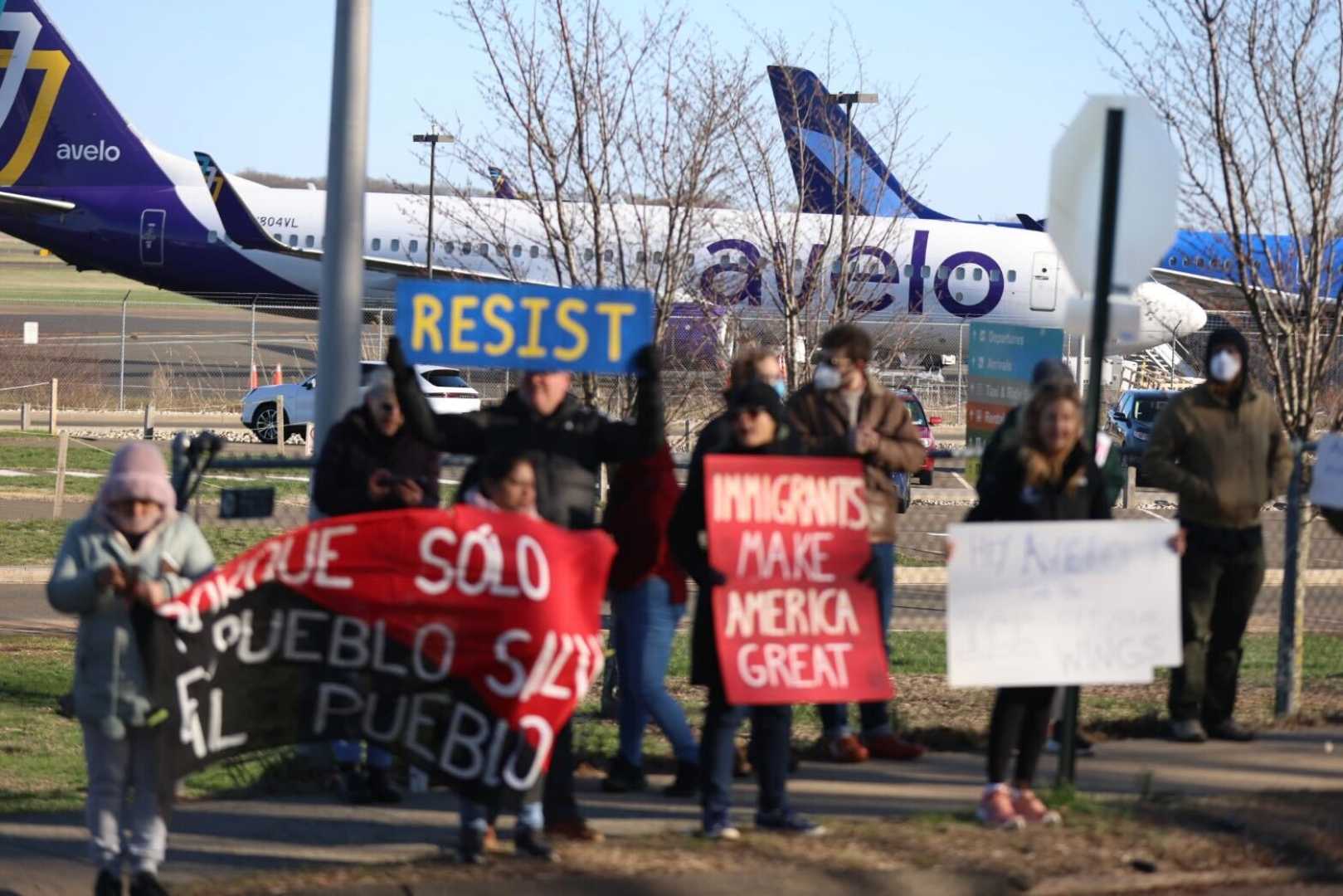News
Activists Challenge Avelo Airlines’ Deportation Flight Contracts in Connecticut

NEW HAVEN, Connecticut — Connecticut activists are making significant strides in their campaign against Avelo Airlines, the airline contracted by Immigration and Customs Enforcement (ICE) for deportation flights. On April 17, 2025, demonstrators marched in front of Tweed Airport, displaying placards that criticized the airline’s collaboration with the Department of Homeland Security to transport migrants.
The Connecticut legislature is currently pushing two measures targeting Avelo Airlines. These include a ban on companies that carry out ICE deportation flights from conducting business with state agencies and the repeal of a fuel tax exemption that primarily benefits Avelo. As of May 12, Avelo is the only airline known to be contracted by ICE for such flights.
In response to these legislative efforts, Roy De La Cruz, the director of the New Haven Immigrants Coalition, stated, “Connecticut taxpayers should not be complicit in government-sanctioned kidnapping.” This sentiment has resonated with community members, as protests and boycotts against Avelo continue to gain traction across the state.
Avelo Airlines began its deportation flights from Mesa Gateway Airport in Arizona on May 12, 2025, using three Boeing 737-800 aircraft. CEO Andrew Levy defended the agreement, emphasizing that it would help stabilize the company and protect over 1,100 jobs. However, this justification has not satisfied critics.
The Association of Flight Attendants-CWA expressed concern about the safety risks of transporting shackled detainees in a flight. “An entire flight of people handcuffed impedes our ability to respond to emergencies,” the union stated. This has raised further questions about the implications of Avelo’s contracts.
Activists are actively working to amplify their message, with many calling for a national boycott of Avelo Airlines. Already, tens of thousands have signed petitions against the airline, asserting that taxpayer money should not fund deportations that sometimes disregard legal processes.
In Delaware, Governor John Carney has also faced pressure to reconsider the state subsidies provided to Avelo, especially as anti-Avelo sentiment grows while the airline is attempting to maintain its market presence.
The outcome of these protests and legislative actions could have far-reaching consequences for Avelo Airlines, which is already facing financial uncertainty. The company has reported needing to raise $100 million to stay afloat. If state legislation passes, it could severely impact Avelo’s financial stability and limit its operations.
As concerned citizens continue to voice their opposition to Avelo’s role in the deportation process, questions remain about the ethical implications of using taxpayer funds to facilitate such actions. Community members hope that sustained pressure will lead Avelo to reconsider its commitments to ICE.
In the words of John Jairo Lugo from Unidad Latina en Acción, “We need to create an economic incentive for Avelo to choose the side of the people over government contracts.”












